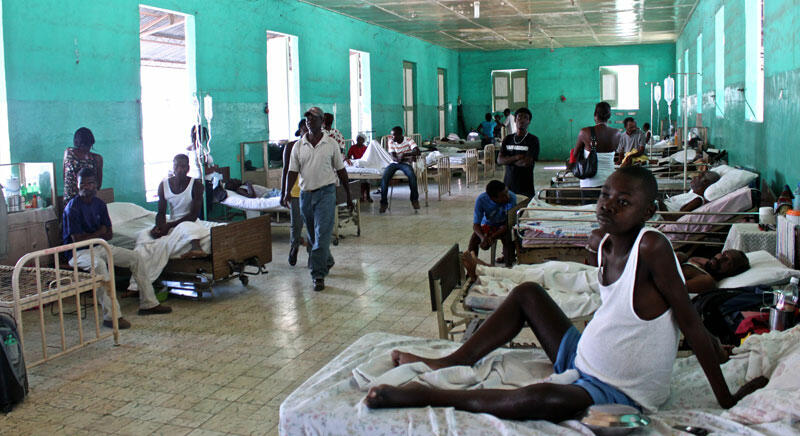
LSTM is leading a six year, £6 million international research consortium to strengthen knowledge of how health systems which have been damaged in conflict situations are most effectively rebuilt.
The REBUILD programme, funded by the UK Government, includes partners in five countries and will focus on health financing, human resources and their interaction.
In health financing, the programme will aim to build knowledge about the implications for women, girls and boys in the poorest households of alternative ways of re-establishing financial support for the public system including new aid institutions, new budgeting strategies and targeted funding for priority programmes. In human resources the programme will focus on management innovations, opportunities for reallocating roles among health professionals in a rebuilding health system and the prospects for both to contribute to improved access to effective services for those most easily excluded.
Tim Martineau, a senior lecturer in human resource management who leads the LSTM team explained: “In countries affected by political and social conflict, health systems frequently break down and emergency assistance provided by humanitarian organisations often constitutes the main source of care. As recovery begins, so should the process of rebuilding health systems but little is known about how effective different approaches are in practice.
“Decisions made in the early post-conflict period can set the long-term direction of development for health systems. Effective and well-targeted public services and well-informed regulatory measures can support an appropriate complementary role for the non-state sector. We will aim to identify particular opportunities arising during recovery conflict as any growth in resources available to the health system as the economy recovers and aid flows increase can reduce the financial burden on poor women and children as well as developing the healthcare workforce. Innovations introduced by humanitarian organisations may be capable of institutionalisation in the public sector and entrenched opposition to pro-poor change may be weaker during this period.
“At the recent Global Symposium on Health Systems Research in Montreux there were very few presentations on health systems in fragile states which underlines our belief that research is much needed in this neglected area and that there are real opportunities for impact,” he added.
-ends-
For further information, please contact:
Alan Hughes, Communications Manager
Tel: +44 (0)151 705 3308
Notes to Editors
LSTM’s partners in the research consortium are: Makerere University, Uganda; College of Medicine and Allied Health Sciences, Sierra Leone; Biomedical Research and Training Institute, Zimbabwe; Cambodia Development Resource Institute, Cambodia; and Institute for International Health and Development, Queen Margaret University, Edinburgh, UK.
The Liverpool School of Tropical Medicine (LSTM) has been engaged in the fight against infectious, debilitating and disabling diseases for more than a hundred years and continues that tradition today with a research portfolio in excess of £192 million and a teaching programme attracting students from over 50 countries.
The Department for International Development (DFID): leading the UK government’s fight against world poverty. Since its creation, DFID has helped more than 250 million people lift themselves from poverty and helped 40 million more children to go to primary school. But there is still much to do. 1.4 billion people still live on less than $1.25 a day. Problems faced by poor countries affect all of us. Britain’s fastest growing export markets are in poor countries. Weak government and social exclusion can cause conflict, threatening peace and security around the world. All countries of the world face dangerous climate change together. DFID works with national and international partners to eliminate global poverty and its causes, as part of the UN Millennium Development Goals. DFID also responds to overseas emergencies.